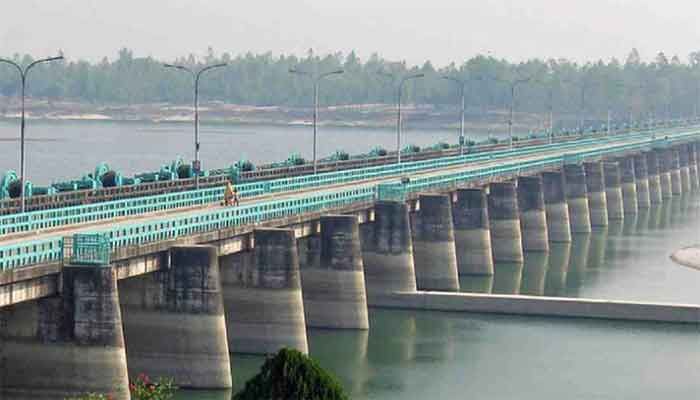
Desk Report
Publish: 27 Sep 2020, 09:35 am

The International Farakka Committee (IFC), which campaigns for parity in transboundary river water sharing between India and Bangladesh, welcomed the government's move to introduce a Chinese-funded Teesta River project, which promises to eliminate the dependence on upstream India for its fair share of the waters if completed.
In a statement on Saturday, it said the Taka 80 billion comprehensive project demonstration will not only mitigate the annual flood and erosion damages, but also ensure the overall socio-economic development of the people of Bangladesh’s Northwestern region.
“The project stands for sustainable development along the 102 kilometre length of the river from the Teesta Barrage at Dalia of Nilphamari district to its outfall in the Brahmaputra via Mohipur and Kaunia,” it said, referring to the route taken by the Teesta upon entry into Bangladesh.
Through their declaration, IFC leaders urged the government to approve and introduce the current Teesta Project and at the same time bring the original Teesta Basin under its coverage to ensure the overall development of the country 's Northwestern area.
They said that after being robbed of its natural flow for decades, the Teesta in Bangladesh has basically turned into a dead river because of excessive siltation.
The absence of flow causes damage to the environment and sufferings to the life of the people.
Drought is taking a destructive turn in the drought-prone Teesta Basin. During the dry season, individuals can cross the river on foot.
The entire flow of the river is released through the sluice gates of the Gajal Doba barrage in India during the wet season.
The river cannot carry this excess load of water due to lack of depth. As a result it causes devastating floods and river erosion almost the entire year.
Four waves of flood this year have pauperised the people living on its two banks.
The Bangladesh portion of the river continues to be deprived of water in the dry season, despite continuous assurances.
The river has been redirected upstream and channeled to the Ganges. The prospect of India sharing the flow of the river looks more and more distant as time passes.
Against this context , the government has taken up the Teesta River project, which aims to increase the river's navigability and to recover 170 square kilometers of land through dredging and to create satellite towns on its two banks following the main channel's stabilization.
It would allow for the establishment of industries with high added value and agricultural production. As part of the construction works, the Solar Park, schools , health complexes, mosques, and general facilities for people's use will feature.
The statement said the IFC leaders believe it is not prudent to stay idle waiting for water to be released as the desertification process in the northwestern region of Bangladesh is getting worse and worse.
This project is no substitute for maintaining the river's natural flow to keep it alive, but progress is expected to be achieved by minimizing the annual flood and bank erosion damage and maintaining improvement of the quality of life of the citizens of the region through integrated development activities.
When, according to the rule of nature, the compulsion to restore the natural flow of the river occurs upstream, the Bangladesh portion of the Teesta will have a new lease of life.
IFC leaders say that if the current project is extended to include the old and original Teesta Basin covering the rivers Atrai, Korotoa and Punarbhaba, the overall development of the Northwestern region of Bangladesh will be complete.
If this is accomplished, the project's command area will occupy 28,000 square kilometers, as opposed to the existing 4,000 square kilometers.
For water conservation and facilitation of fish and duck farming in the wet season and irrigation in the dry season, the enormous Chalan Beel can be used.
Cheap water communication would encourage the growth of industries, including agro-based industries, if the rivers return to their navigability.
Attractive tourist facilities based on rivers will be built. In the area, the level of groundwater will increase and help keep all tubewells working during the year.
The statement has been signed by IFC New York chairman Atiqur Rahman Salu, secretary general Sayed Tipu Sultan, IFC Bangladesh president Prof. Jasim Uddin Ahmad, senior vice-president Dr. S.I. Khan and IFC coordinator Mostafa Kamal Majumder.
Subscribe Shampratik Deshkal Youtube Channel
© 2024 Shampratik Deshkal All Rights Reserved. Design & Developed By Root Soft Bangladesh